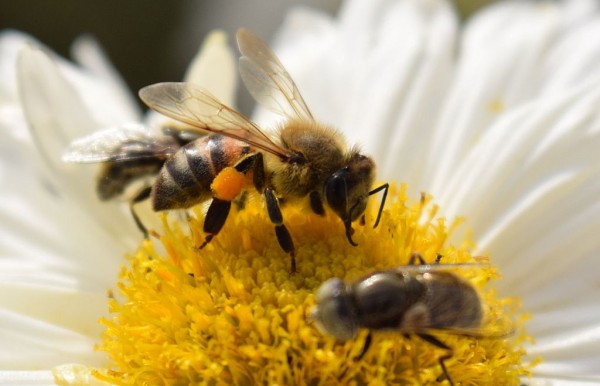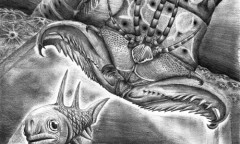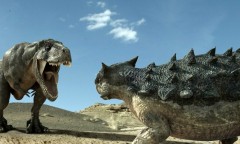By Cybelle Go, | February 26, 2017

Bumblebee Experiment
Clint Perry, a cognitive biologist at the Queen Mary University of London, was interested in creating a vending machine for bumblebees as means of determining the limits of animal intelligence.
Like Us on Facebook
Perry wanted to run a test on bumblebees by showing the insects with a puzzle not frequently encountered in their daily habitat.
Perry said that he was interested to explore brain function, particularly in decision making. Perry, along with his colleagues, explored this experiment in Science, a known medical journal. The study discussed how bees can solve simple problems through observing, despite small brain size.
The study concluded that bees can have the capability to adapt to new food sources should an environment change occur.
Perry created a platform, placing a ball at the center. The ball is made of porous material, with any substance sticking to it. If the bee went to the ball directly, it can access a reward embedded in the porous ball such as sugar water.
Bumblebees headed towards the platform and started drinking the sugar water in the middle of the ball. Since the objective of the first experiment was for bees to learn how to roll a ball, the researchers transferred the ball to the edge of the platform.
The bees looked at the center part and saw that there was no reward, so they had to figure out to move the ball from the edge to the center so they can receive a reward. The bees were shown a demo of a plastic bee, placed at the end of the stick, scooting the ball towards the platform to get the reward.
The second experiment went well and the bees became more creative in their approach by choosing a shorter route or dragging the ball backwards. This experiment further affirms that insects can learn new skills if the brain is wired correctly.
This research sparked positive reviews among experts. Dorothy Fragaszy, a comparative psychologist, said that bees are behaviorally flexible than expected by humans.
Thomas Seeley, a biologist, said that it is difficult to see how it is an analog to how bees do in nature. Perry and his team will continue to run tests on bees' learning abilities. He added that it would be great to teach these bumblebees how to fetch a ball.
-
Use of Coronavirus Pandemic Drones Raises Privacy Concerns: Drones Spread Fear, Local Officials Say

-
Coronavirus Hampers The Delivery Of Lockheed Martin F-35 Stealth Fighters For 2020

-
Instagram Speeds Up Plans to Add Account Memorialization Feature Due to COVID-19 Deaths

-
NASA: Perseverance Plans to Bring 'Mars Rock' to Earth in 2031

-
600 Dead And 3,000 In The Hospital as Iranians Believed Drinking High-Concentrations of Alcohol Can Cure The Coronavirus

-
600 Dead And 3,000 In The Hospital as Iranians Believed Drinking High-Concentrations of Alcohol Can Cure The Coronavirus

-
COVID-19: Doctors, Nurses Use Virtual Reality to Learn New Skills in Treating Coronavirus Patients










